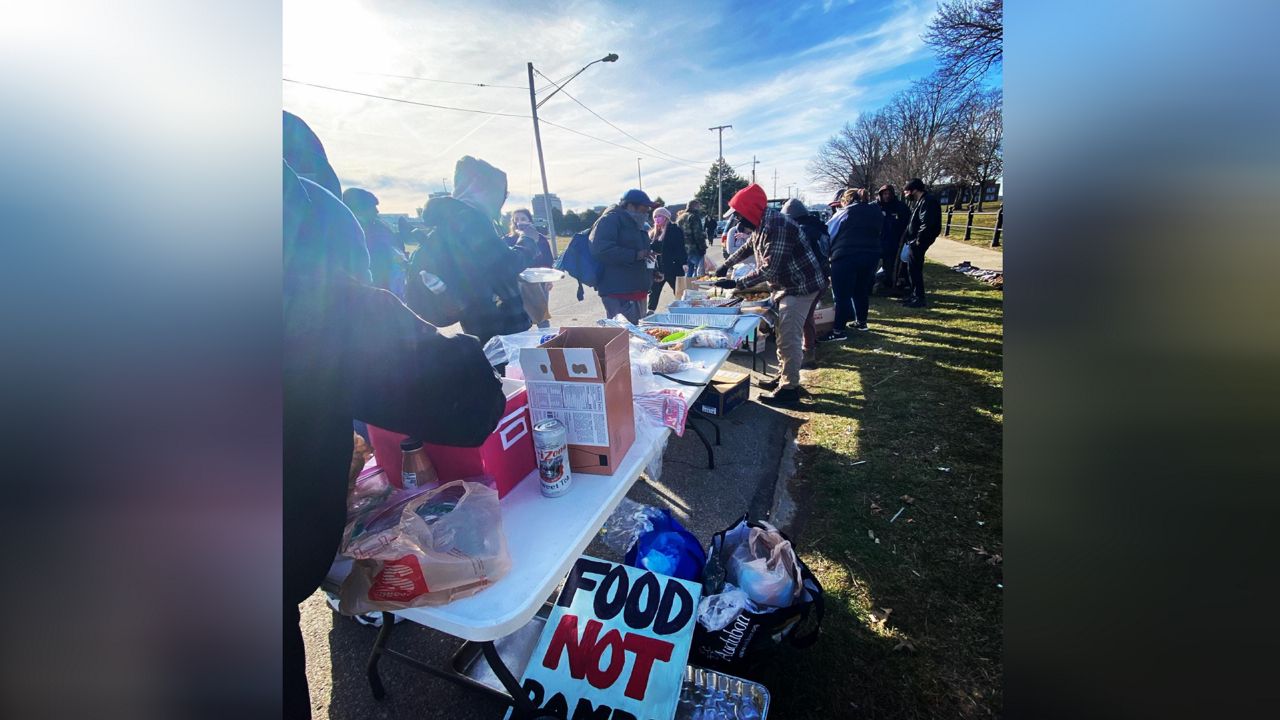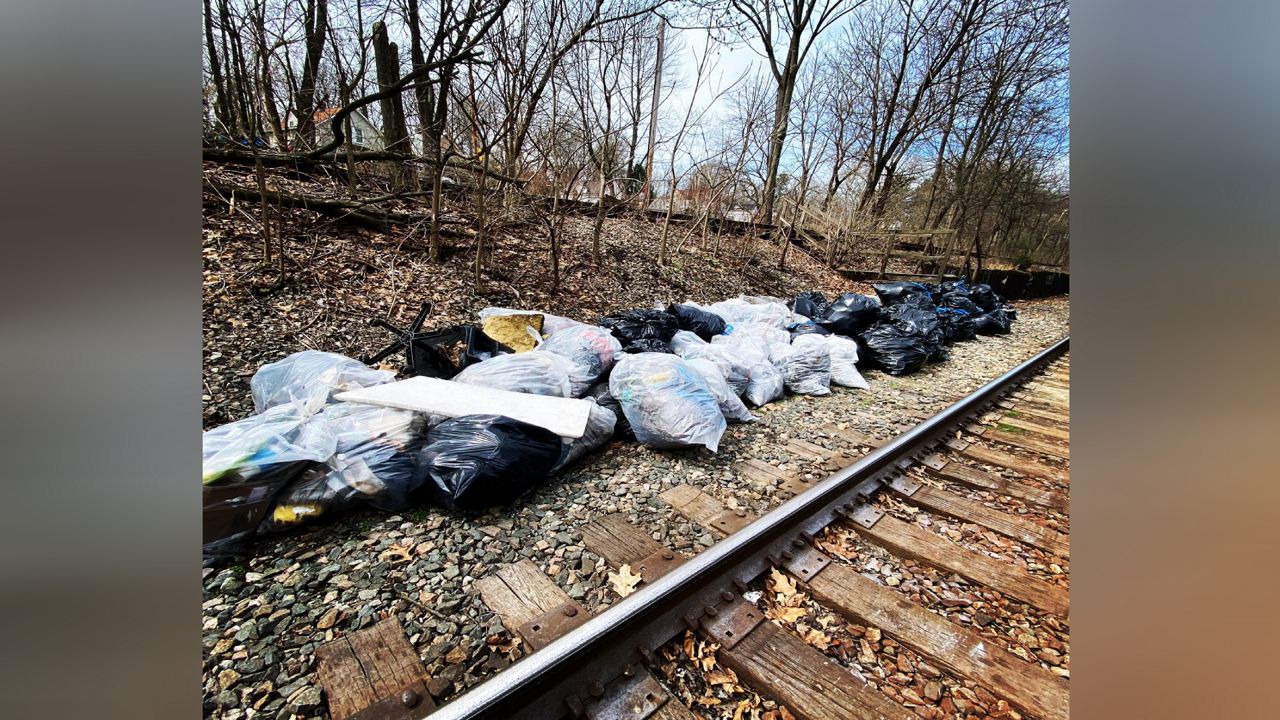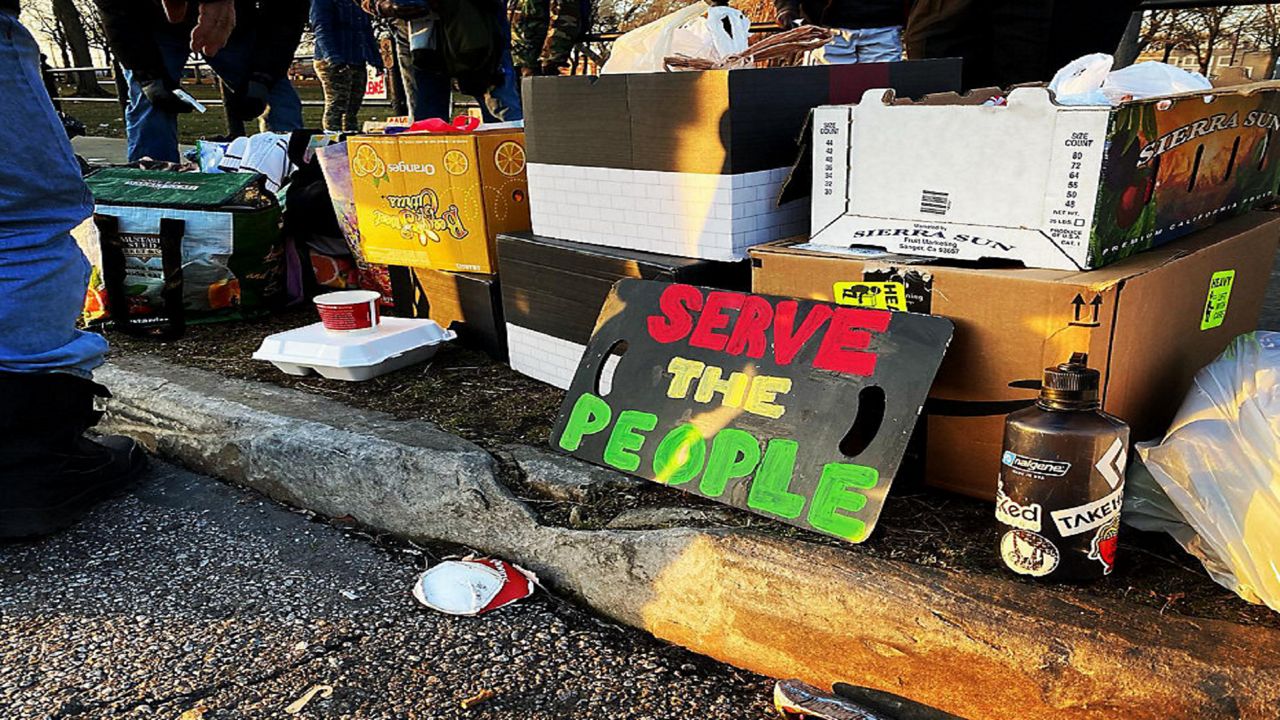AKRON, Ohio — Every Thursday and Sunday, a group of altruists, or maybe just good neighbors, come together to do good works on behalf of Akron’s homeless.
They call themselves “Serve the People.”
They are Akronites and Clevelanders of all ages with some also members of similar organizations — Food Not Bombs, the Panther Solidarity Organization, Wake Food Bank and the Akron Minority Council. They formed last summer after Black Lives Matter and other protests began dying down because they wanted to keep humanitarian momentum going, said spokesman Nickolas Cacioppo.
“We kind of formed "Serve the People" as an umbrella organization that was non-hierarchical, decentralized participation and super democratic, consensus-based decision making,” Cacioppo said. “Zero hierarchy.”
Serve the People delivers food and supplies, like blankets, batteries and propane, and cleans- up trash around homeless encampments. With some camps near railroad tracks adjacent to the Towpath Trail, the clean ups benefit trail users as well, Cacioppo said.
Serve the People prefers to refer to those it helps as “houseless,” Cacioppo said. Focusing on the houseless population is a way to enable the group, with limited resources, to serve myriad populations they said have been abandoned by society.
“They’re more likely to be Black and Brown folks, are more likely to be queer folks; they're more likely to be women,” he said. “They're more likely to be sex workers. They're more likely to be people suffering from mental and physical abilities. They're more likely to be poor people, or people who have been evicted, people who have been incarcerated and recently freed. Houseless is a kind of catch-all for a bunch of different sorts of oppressed identities and oppressed people.”
Cacioppo said much of what drives Serve the People is empathy.
“We have a pretty diverse collective, so, you know, we understand firsthand the struggle of living in poverty, living on the streets,” he said. “We just want to do what we can to kind of lift each other up and lift the groups that we serve.”

The city of Akron often works collaboratively with volunteer groups that visit the homeless encampments to offer aid, said Eufrancia Lash, Deputy Director of Public Service and Neighborhood Assistance.
“Any citizen or group that has found in their lane to help other human beings, especially those that are in those particular situations, you know, they're helpful to the overall community, so we are not opposed to those groups,” he said. “We don't want to discourage that type of assistance.”
However, problems arise when communication between the city and the groups isn’t open, especially regarding what services the city can and does provide the homeless, he said. In addition, the city doesn’t have jurisdiction over property around the railroad tracks, which is private property owned by CSX Railroad.
To do what it can for the homeless, the city partners with agencies, like Summit County's Continuum of Care, Lash said, which works to house the homeless and connect them to an array of services.
Serve the People has spent the past couple Saturdays, which the group calls “community days,” doing clean up at encampments, and planning spring plantings for beautification there, he said.
These acts are simply designed to make the lives of those who have less, better, Cacioppo said.
“It's super refreshing for people to be accepted as human beings to, you know, just be talked to by a person on the street. It's a humanizing experience,” he said. “I don't think some of these folks are treated like that.”
Cacioppo stressed he is only a spokesperson, emphasizing the group’s decentralized nature. While some group members are involved with national nonprofits, Serve the People members have no interest in making their group a nonprofit.
“The general consensus is to kind of understand nonprofits to be super limited and regulated,” Cacioppo said. “And, we'd rather be as decentralized and nonhierarchical, and as nonbureaucratic as possible.”
Since the group can’t seek grants, the members try to be resourceful during clean-ups, reclaiming any useful materials -- tarps, fabric, metal -- to repurpose or exchange for cash to give to the homeless, he said.

Group members sometimes dip into their own pockets, Cacioppo said, spending some weeks up to $300 on bus passes to give out.
“A bus pass costs $2.50 and most of these [nonprofit] organizations, to get any sort of resource like that, you have to fill out a ton of paperwork, you have to meet this and this and this requirement,” Cacioppo said. “So, it's refreshing for these folks just to be handed resources and given resources and even invited into the process. We regularly ask folks how they want us to spend our money and we try our best to, you know, get those supplies to them. We’re really tailoring our work to the needs, desires of these folks.”
On a recent Saturday, Serve the People spent most of the day with the people they serve.
“They actually cooked lunch, like a really reciprocal mutual endeavor,” he said. “It was just a chance to really talk to folks down there, form some really meaningful relationships and to really show that solidarity.”
To help Serve the People continue its work, a GoFundMe campaign was launched, so far raising $435 of $1,000.



